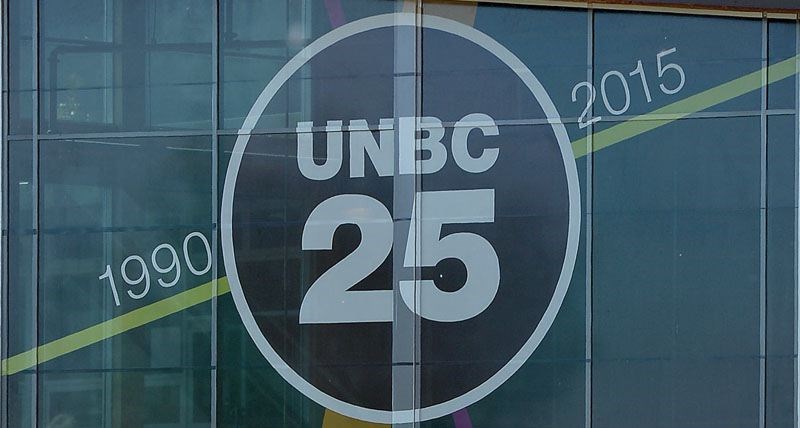A packed public gallery, overflowing with students and professors dressed in full academic regalia, met the University of Northern B.C. Senate for its first meeting after the faculty strike.
Much of Wednesday's discussion centred on the university budget. Although the senate is the institution responsible for academic affairs, it can provide budget recommendations to the Board of Governors (which meets today) if it pertains to the university's ability to meet its academic mandate, said senate vice chair Paul Siakaluk.
The bulk of UNBC's expenses are connected to wages, which sit at around $42 million of the $64 million listed as recurring expenses for the 2014 - 2015 school year.
Siakaluk, a psychology professor, said based on the available information, it's difficult for the community or university to have a true understanding of UNBC's finances.
"The senate does not know from these kinds of budget reports that have been presented to senate over the last few years, the real financial situation of the university," said Siakaluk, adding that's the crux of the disagreement between administration and the faculty.
The union says it has the money to re-map faculty salary structure, the university says it doesn't.
So Siakaluk has requested the senate see both initial budgets and - importantly, he said - actual revenues and expenditures over the past five years.
"Interestingly (president Daniel Weeks) said in response that he is not happy with the kinds of financial information he has received either. The senate and him were on agreement on that," he said.
UNBC wouldn't comment on that characterization or provide further clarification on available financial reports.
Siakaluk expects the senate to see the requested reports in the next couple months.
Wendel Schwab, one of the undergraduate representatives on council, said some of the questions centred on decisions to renovate the residences and cafeteria.
"It was generally agreed that in the past... university budget priorities have been out of whack and have placed facilities and renovations and things like that above investment in people," said the fourth-year English student.
"It should be public knowledge but the university budget is actually quite Byzantine in its construction. It's kind of difficult to understand," Schwab said. "There were all sorts of questions about is faculty spending less than other departments? Are we overspending on facilities? Things like that."
Schwab said students didn't get an answer from Weeks about compensation for the lost two weeks, but the president said he had addressed it with Advanced Education Minister Andrew Wilkinson.
"From my perspective I think he seemed committed to following through with this and that gave me some hope"
The senate also confirmed the semester would not be extended. The last day of classes is scheduled for April 17 and the exam period is April 20 to 30.
Schwab said students, including himself, are less timid about speaking up and more willing to take an active role in university decisions.
"One of the senses that I got is that there's been a lot of trust lost at the university," he said.
"We're going to have to work pretty hard to regain that trust and to rebuild a lot of relationships. I think it can be done and I think it will be done."
The bargaining teams met with a mediator Wednesday for the first time since the university asked the Labour Relations Board to step in and suspend the strike under a process available to parties involved in a first collective agreement.



